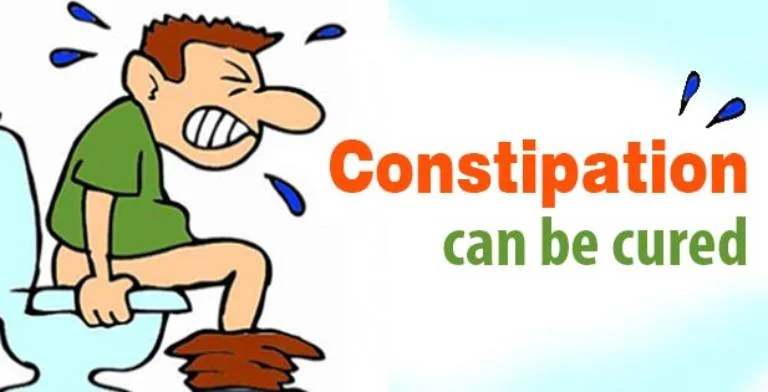Types of Constipation and Best Laxatives: A Comprehensive Guide
Introduction
“Constipation” is a common gastrointestinal issue that can affect individuals of all ages. It’s characterized by infrequent bowel movements, difficulty passing stool, and discomfort. In this comprehensive guide, we will explore the various types of constipation and best laxatives to address this condition effectively.

Table of Contents
- Understanding Constipation
- What is Constipation?
- Why Does Constipation Occur?
- Types of Constipation
- Chronic Constipation
- Functional Constipation
- Travel-Related Constipation
- IBS-C (Irritable Bowel Syndrome with Constipation)
- Pregnancy-Induced Constipation
- Common Causes of Constipation
- Diet and Nutrition
- Lack of Physical Activity
- Dehydration
- Medications
- Medical Conditions
- The Impact of Constipation
- Physical Discomfort
- Psychological Effects
- Quality of Life
- Best Laxatives for Constipation
- Fiber-Based Laxatives
- Stimulant Laxatives
- Osmotic Laxatives
- Prescription Medications
- Natural Remedies for Constipation
- Dietary Changes
- Hydration
- Regular Exercise
- Probiotics
- Seeking Medical Advice
- When to Consult a Healthcare Provider
- Diagnostic Tests for Constipation
- Preventing Constipation
- Lifestyle Modifications
- Dietary Tips
- Conclusion
- Recap of Key Points
- Importance of Addressing Constipation
- Frequently Asked Questions (FAQs)
What is Constipation?
Constipation is a digestive issue characterized by infrequent bowel movements and difficulty passing stool. It can lead to abdominal discomfort, bloating, and a sense of incomplete evacuation.
Why Does Constipation Occur?
Several factors can contribute to constipation, including a low-fiber diet, insufficient water intake, lack of physical activity, certain medications, and underlying medical conditions. Understanding the root causes of constipation and best laxatives are essential for effective management.

Types of Constipation
Chronic Constipation: Managing with the Best Laxatives
Chronic constipation is characterized by persistent, long-term difficulty with bowel movements. Lifestyle factors, dietary choices, and medical conditions can all contribute to this condition.
Functional Constipation: Best Laxatives for Relief
Functional constipation occurs when there’s no identifiable underlying cause for the condition. It is often linked to poor dietary habits, lack of exercise, and stress.
Travel-Related Constipation: Coping Strategies and Laxatives
Traveling can disrupt regular routines, leading to temporary constipation. Changes in diet, sleep patterns, and dehydration during travel can contribute to this issue.
IBS-C (Irritable Bowel Syndrome with Constipation): Treatment and Best Laxatives
IBS-C is a chronic gastrointestinal disorder marked by abdominal discomfort, infrequent bowel movements, bloating, and gas.
Pregnancy-Induced Constipation
Pregnant women frequently experience constipation due to hormonal changes and the pressure of the growing uterus on the intestines.
Pregnancy-Induced Constipation: Best Laxatives and Tips
Constipation can be caused by various factors, including:
- Dietary choices low in fiber.
- Inadequate water intake.
- Lack of physical activity.
- Certain medications.
- Underlying medical conditions.
Understanding these causes helps in preventing and managing constipation effectively.
The Impact of Constipation
Constipation can have a significant impact on one’s life, leading to:
- Physical discomfort, including abdominal pain.
- Psychological effects, such as increased stress.
- A reduced overall quality of life.
Best Laxatives for Constipation
Fiber-Based Laxatives: A Natural Solution
Fiber-based laxatives, like psyllium husk and methylcellulose, add bulk to stool, making it easier to pass.
read more about Exploring the Wonders of a Fiber-Rich Diet
Stimulant Laxatives: When Quick Relief is Needed
Stimulant laxatives are more potent and work by irritating the intestines, promoting bowel movements. They should be used cautiously and for short periods.
Osmotic Laxatives: Gentle and Effective
Osmotic laxatives draw water into the intestines, softening stool and facilitating bowel movements.
Prescription Medications: Consultation and Best Laxatives
In severe cases, healthcare providers may prescribe medications like lubiprostone or linaclotide to increase fluid secretion in the intestines.
Natural Remedies for Constipation

Apart from laxatives, natural remedies can also help manage constipation, including dietary changes, increased hydration, regular exercise, and the use of probiotics.
Seeking Medical Advice
It’s crucial to consult a healthcare provider if you experience chronic or severe constipation. Diagnostic tests may be needed to identify underlying causes.
Preventing Constipation
:max_bytes(150000):strip_icc()/VWH-LauraPorter-HowtoPreventConstipation-Standard-aacea57360a547e2a146ef8f002ec1df.jpg)
Lifestyle modifications, such as adopting a high-fiber diet, staying hydrated, and regular exercise, can help prevent constipation.
Conclusion
In conclusion, constipation is a common digestive issue with various types and causes. Understanding the root of the problem is essential for effective management. Whether you opt for laxatives, natural remedies, or lifestyle changes, addressing constipation can lead to improved overall well-being.
Frequently Asked Questions (FAQs)
FAQ 1: Can constipation be a sign of a more serious condition?
Constipation can sometimes indicate underlying medical issues. If it persists or is accompanied by other concerning symptoms, consult a healthcare provider.
FAQ 2: Are laxatives safe for long-term use?
Laxatives are generally safe for short-term use. Long-term use should be under medical supervision to avoid dependency.
FAQ 3: How much fiber should I consume daily to prevent constipation?
Aim for at least 25 grams of fiber daily for optimal digestive health.
FAQ 4: What lifestyle changes can help with chronic constipation?
Increasing fiber intake, staying hydrated, and regular exercise can significantly improve chronic constipation.
FAQ 5: Are there any specific foods that can worsen constipation?
Processed foods, high-fat dairy, and red meat can exacerbate constipation. Incorporating more fiber-rich foods can help alleviate the issue.
This comprehensive guide provides valuable insights into understanding and managing constipation effectively. Whether you’re dealing with occasional discomfort or chronic constipation, this resource equips you with the knowledge to make informed decisions about your digestive health.














 Viesearch - The Human-curated Search Engine
Viesearch - The Human-curated Search Engine
